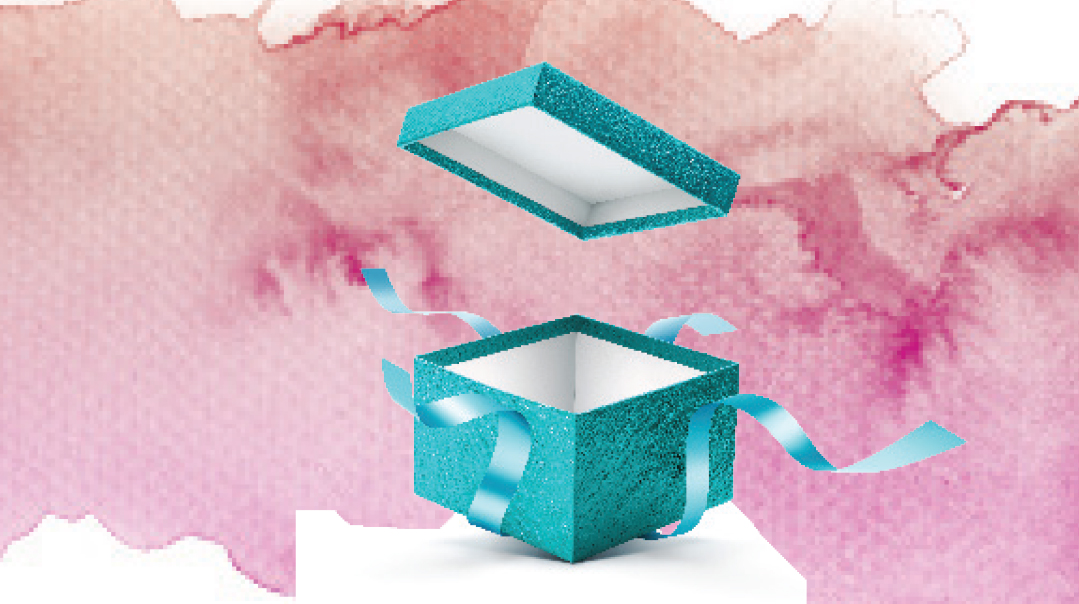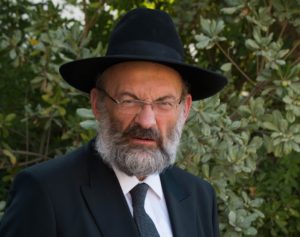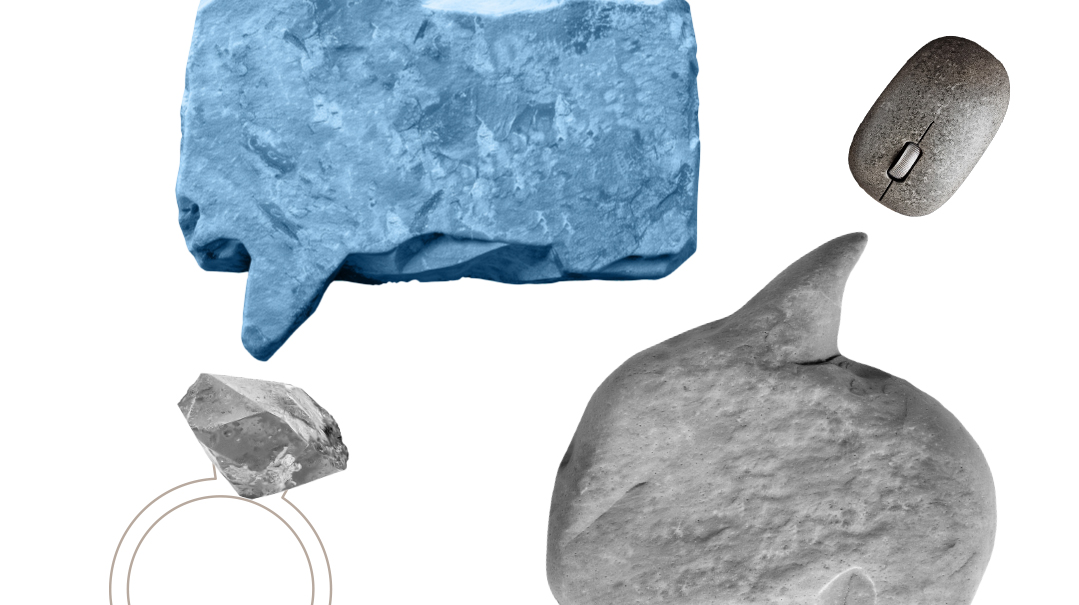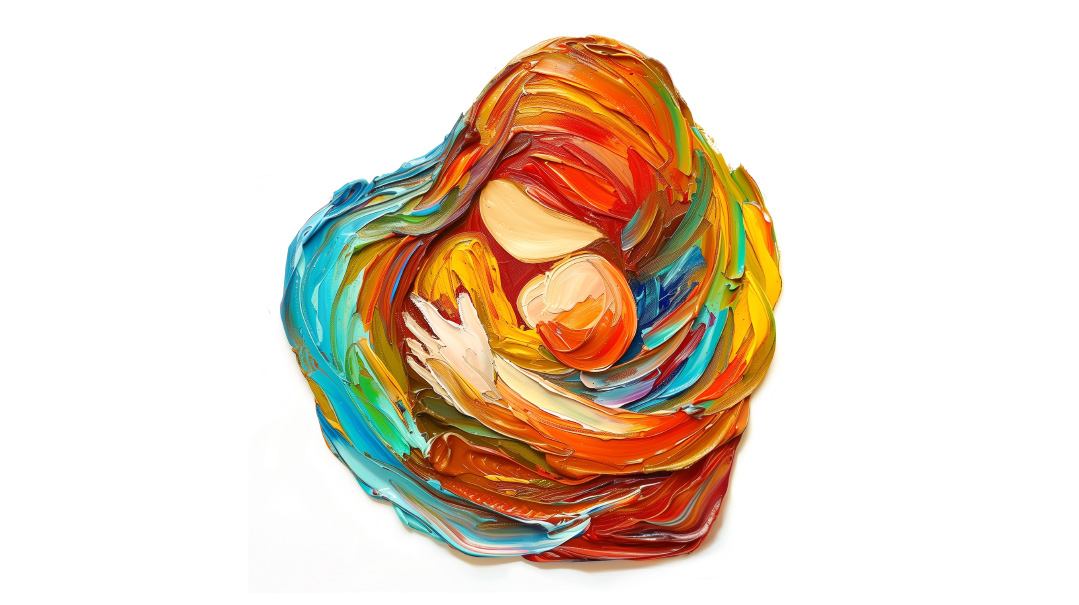Inner Gifts

Many schools teach the what; Sara Devora Chrysler teaches the why

Sara Devora Chrysler talks with her hands. They circle, flutter, tap the table, caress the plate, bringing to life everything she says in her mellifluous South African accent.
“If this world is a corridor to the next, there’s no time to dillydally,” she reminds us.
From her home in Manchester, England, Sara Devora has embarked on an ambitious project to strengthen Klal Yisrael through its youngsters. Three years ago, together with her project team, called Noam Ziv, Sara Devora launched Treasure Hunt (see sidebar), a ground-breaking, fully structured curriculum for schools, designed to strengthen Yiddishkeit from within.
Mechanchim across the world lament what they say is missing in today’s Yiddishkeit: a sense of purpose and connection. So many of us keep Shabbos and kashrus simply because. Ditto tzniyus, tefillah, and… and… Tragically, the lack of thought, feeling, or understanding is taking its toll in a crumbling connection with the things that count.
In this quick-fix generation, Sara Devora says, where Yiddishkeit can become just “something we do,” she sees Treasure Hunt transmitting a profound message.
“My goal is to nurture a joyous spiritual intelligence. We feel it’s negligent in a generation like ours not to make the learning of penimiyus [internality] as important as providing time for Chumash and tefillah, as this actually enhances the integration of all subjects and all of Yiddishkeit. You can learn so much, and you can go from subject to subject”—her hands dance along the edge of the table as she speaks—“but how does it affect your everyday living?”
Inspired by the Ramchal, Chovos Halevavos, Nesivos Shalom, and other seforim, and blessed with haskamos from respected rabbanim, Treasure Hunt aims to teach children to speak a spiritual language. Students learn about their relationship with themselves and others — and most crucially, learn to build a connection with HaKadosh Baruch Hu, talking about Him unabashedly, all while gaining an understanding of their neshamos and the power of their thoughts, emotions, behavior, and speech.
Sara Devora, who has been a school art therapist for over 20 years, stresses that Treasure Hunt is a new subject for schools, not just another program. Dozens of curricula teach the what of Yiddishkeit; Treasure Hunt teaches the how. While other programs also deal with self-growth, Treasure Hunt’s uniqueness is that it’s taught through a Torah lens. Even though it incorporates an understanding of human thought and emotion, at its core lies the neshamah and the relationship between the physical and the spiritual.
Rav Gershon Miller, mashgiach of Gateshead Yeshivah, wrote in his haskamah, “We invest endlessly in teaching our children about middos tovos, about yiras Shamayim, and about kedushah, but often fall short in showing them how to reach these most precious goals. Treasure Hunt shows them how. With outstanding structure, clarity and insight, it charts the process through which we become wholesome, integrated and connected.
Spiritual Labor
Sara Devora’s passion for this project stems from decades of spiritual labor. She speaks honestly about her hard-won relationship with Hashem, which was the catalyst for Treasure Hunt.
“My relationship with Hashem was once very stormy. I was like a fair-weather friend — when everything was fine, I loved Hashem. When something terrible happened — like someone lost a baby to cot death — I used to fall to pieces. How can You do that?
“I had barriers with my kesher with Him. I found it almost impossible to say gam zu l’tovah. I didn’t want to say that something that was horrible was good.”
Her husband encouraged her to work on her emunah. She struggled, and reached a decision. “I wanted to overcome my barriers for the sake of my children. In every challenging relationship, you can either sever ties or try to make it work. I decided to make it work. I did lots of reading, daily, in little bits — Rav Wagschal’s book With All Your Heart, and other books on emunah. I also turned to my rabbi.
“Now, I attribute my closeness to the Eibeshter to the fact that He and I live a relationship of total emotional honesty, zero pretenses… a bit like a loving father with a very open, challenging teen. A teen who wants to learn and grow and be mekabel, but needs time to throw tantrums and mature and grow. My goal was to make Hashem real. It’s been the surprise of my life to see how exciting that is.”
Today, Sara Devora talks to Hashem openly, badgers Him, even bargains with Him… and from the stories she tells, He comes through for her again and again.
When she davens for navy shoes in hard times, someone knocks on her door offering her a too-small pair they’ve bought; when she asks Hashem how to get rid of the old sinks in her backyard, a passing junkman appeals for scrap steel.
Even onions get thrown into the mix.
“When we committed ourselves to my husband learning full-time, we sometimes had to rely on miracles. One day, I didn’t even have money to buy onions for supper. My husband came home for lunch, and I asked if he had some change. He felt distressed, but he didn’t have any. As I walked him out on his way back to kollel, I was despondent, and wanted to pour my heart out. I said, ‘All I want from Hashem is a few onions. I’m not asking for luxuries.’
“As I walked back into the house, I saw a brown paper bag on the porch. There were onions inside! My mouth dropped open: Thank You, Hashem, thank You! Who can they be from? Someone might give you fruit or chocolate for a present, but no one gives you onions! I made my supper b’simchah!”
A few days later, a non-Jewish neighbor asked if she had received their onions. Sara Devora stared at her. Why onions? The woman explained that her husband had harvested the vegetables from his garden plot, divided the spoils among his children, and given some spare onions to the Chryslers.
Sara Devora calls her Hashgachah stories “hugs from Hashem.”
If you don’t know Sara Devora, you’d be forgiven for rolling your eyes just a tad, thinking they sound a little saccharine, these stories. Real life just ain’t like that.
But, as one of her rabbanim put it, “Mrs. Chrysler has a very special relationship with HaKadosh Baruch Hu.” She also davens long and hard for her answers — which are sometimes no. And she accepts that.
Unblocking the Shefa
A foundational part of the Treasure Hunt program is the concept of TEBS, an acronym for Thoughts, Emotions, Behavior, and Speech. A naturally bubbly person, Sara Devora stumbled across the idea when she realized one day that as a result of life’s challenges — financial pressures, bringing up teens, hearing sad stories — she’d lost some of her sparkle. Concurrently, she noticed that the brachah she was used to seeing had also diminished.
“I said to my husband, ‘Hashem is perfect, He doesn’t do strange things. Why would I feel He’s taken a step back? There’s a barrier. His shefa is always there, so what’s wrong with my relationship with Him that there’s this blockage, when I’m trying so devotedly?’ ”
Wondering if there was a link between the decrease in open siyata d’Shmaya and her reduced happiness, she decided to work on her simchas hachayim. Sara Devora places her hands over her heart. “If you work on your happiness and inner peace, it opens channels to brachah. I worked hard — and then I saw the Yad Hashem pattern realign.”
It sounds so simple, though: Flick the happiness switch — and presto, Hashem’s back in your life. Surely, if it was that easy, we’d all be gliding through roses.
What did she do practically to change her attitude?
“I’d learned from Ramchal that our external impacts our internal. I used my thoughts, emotions, behavior, and speech to lift my mind and heart to a more positive, peaceful state. If I felt my shoulders drop, my heart sinking, I’d say, ‘Uh-uh, get your body language right — get yourself back up!’ ”
She shares a dramatic example. “My son was getting married in Eretz Yisrael. We had huge financial demands. I was making an aufruf the next week with an empty purse. It’s natural to feel crushed — your shoulders drop, your eyes are droopy, you have this kind of krechtzy feeling. I was starting to wallow. And then I thought”—her voice switches to singsong—“Sara Devora, Hashem dwells where there’s simchah. You’re dropping into melancholy. If you want Him to open channels of brachah for you, stop this despair and sinking. Pick yourself up. I physically lifted my shoulders, made myself smile, opened my eyes wide, told myself, ‘Stop worrying — let Hashem dwell with you.’ ”
That night, she received a phone call. A friend explained that her neighbors had wanted to make sheva brachos, but because the chasunah was overseas, they instead wanted to help with the aufruf.
It was a eureka moment. “That was the seed,” Sara Devora says, tapping the table with every word. “I learned that the flow of siyata d’Shmaya is strongly dependent on what’s going on inside a person, and I thought, How can I know this glaring correlation between simchah and brachah and not do something about it?”
Shortly after this light bulb experience, Sara Devora visited her native South Africa. Asked to inspire the community’s women with her innate spirituality, she spoke about her experiences of living Yiddishkeit with simchah. Afterwards, she was thrown a public challenge by community activist Dr. Fiona Aronovitz: “Do something for the children of our generation!”
Sara Devora relives that meaningful instant. “I was shaking — my knees were wobbly. And then I thought, Well, why not? I’ve had 20 years of experience working with children doing what I call Emphasis Art — my own version of art therapy — where we focus on growing and navigating challenges through art. I have a wealth of personal life experience through my own nisyonos and life path. I’m going to do it.”
A Sign
Sara Devora shared her vision with the principal of the school where she taught art therapy, Rabbi Yonason Yodaiken. He told her that he’d read approximately 30 books on chinuch. Each said that one needed to work with the child’s neshamah, but in all his years of experience, he hadn’t found an effective program to do that. His encouragement was simple and direct: “Mrs. Chrysler, I know you’re going to do it.”
Armed with his confidence, Sara Devora was ready to proceed… but then bumped into another life lesson: Challenges will rear up to stop you. You need tefillah and determination to overcome them.
Voices of self-doubt began jeering at her. “I thought, Hashem, I think You’ve picked the wrong person. I’m too scared, I’m not an intellectual.”
The next morning, relaxing with her cup of tea, Sara Devora opened one of Rav Avigdor Miller’s books and read: “Do not worry about your wisdom — it will grow with your passion.” A sentence she’d read about Rav Dessler also encouraged her. Rav Dessler was shy about doing the work he did; what spurred him on was that he believed in it so strongly.
But doubt is an unrelenting monster, and Sara Devora was in its grip.
“I didn’t have credentials except experience, determination, and sincerity.” She ticks off a list on her fingers. “I didn’t have wealth, yichus, degrees, or qualifications. I’m not a rebbetzin. Who on earth was going to listen to me?
“I davened for a siman of courage. I said to Hashem, ‘You know and I know that Your children need this. But I’m scared. I need a sign from You — something concrete. As soon as that comes, I’ll get the show on the road, no matter who tries to put me down, no matter the hurdles and stumbling blocks.”
The sign she chose was a sum of money — any amount — through a source she’d never received from before. And could she have it, if you please, by Wednesday night.
Her ever-supportive husband stared when she told him. She laughs. “He said, ‘Crazy lady. I’ve heard of people making deals with Hashem, but I’ve never heard of someone giving Him a deadline!’ ”
As Wednesday afternoon lengthened, Sara Devora paced her dining room, pouring her heart out. “ ‘Hashem, these are Your children. I’m acting on the emes. Please get me the siman before tonight.’ I don’t think I would’ve had the chutzpah if I hadn’t seen the emes.”
A knock came. A man named Leslie, whom the family had befriended and periodically invited for Shabbos, stood at the front door. He’d just attended the funeral of a friend who had left him an inheritance, and as a sign of gratitude for opening her home and introducing him to a real Shabbos, he was giving Sara Devora £500.
The best part, she says, was calling her husband at kollel. Resignedly, he said, “Ye-e-es?”
She had the satisfaction of his shocked: “You— must— be— joking!”
When she retold this story in a Manchester sem, a staff member challenged her, concerned that she was conveying a distorted message. They consulted a widely respected rav, who said, “If you asked a rich man for £20,000 and gave a deadline, it would be a chutzpah. But Hashem is your Father — you can ask your Father anything.” Nevertheless, he advised them to clarify to the girls that Hashem’s answer might be no.
“So now,” Sara Devora says, “I was sitting in my house with this huge vision pumping inside me.”
She discussed her dream with several senior educators, who embraced it. Rabbi Yodaiken offered his school for a pilot run of the program. One mashgiach told her that he appreciated that she was “not trying to do something revolutionary, but just bringing back what’s been lost, and fortifying what there is.”
A Jewish Star
Sara Devora’s parents must be reaping nachas from what she’s created, having imbued her with her passionate Jewish identity. Growing up in a traditional home in Kroonstad, a small South African country town, she was the only Jewish girl her age, but says that the most exciting aspect of her childhood was that she was Jewish.
“We were raised to have such pride in being Jewish, part of one big family. My father used to say ‘the Eibeshter this, the Eibeshter that.’ And he’d say, ‘Never forget that you’ve got another Daddy called Avraham Avinu.’
“When we were little children, wearing a Magen David was like”—she leans forward, breathes in deeply, and slows her words for emphasis—“was like, I’m… doing… something… Jewish! We had a connection to HaKadosh Baruch Hu, our heritage and Klal Yisrael.”
Despite suffering severe ill health, her father modeled perseverance, determination, and contentment, and her mother showed tremendous commitment in the face of her husband’s illness.
Her parents wove life lessons into difficult moments. “When I was little and my father strongly reprimanded me for being naughty, he would always have a little heart-to-heart chat as follows: ‘What you did is very naughty and you deserved the zetz, but I want you to know that one day this strong-mindedness will be very valuable and used for the good, and it will get you very far in life.’ As a little girl, I felt curiously excited about his words, but also used to wonder what could be so good about something that earns one a zetz and telling off.”
Her awareness of Hashem’s presence in her life developed as she matured and at 18, she followed her heart and began to study at Neve Yerushalayim. “I had this unquenchable thirst to find out more about Yiddishkeit. That thirst has never been quenched since.”
The Same Song Sheet
Today, Sara Devora is passing on the baton her parents passed to her, as Treasure Hunt is taught in schools across the spectrum in England, from nonobservant to chassidish. It’s also being translated into Yiddish and Hebrew, and Sara Devora and her Noam Ziv team plan to launch it in other countries as well. They’re currently developing its curriculum further, and will work on a program for high school and one for adults so that, in Sara Devora’s words, “the children and adults are all singing from the same song sheet.”
People often ask Sara Devora how she can give one program of ruchniyus to different sectors. “My answer is if you give every woman a recipe for chocolate cake, each one will look different — but all the core ingredients are the same. Every Jew, regardless of their flavor, has a body, mind, heart, and soul that need channeling according to our value system. We’re giving the recipe, and everyone can tweak it their way.”
One school principal described Treasure Hunt as “the bottom line of Yiddishkeit. Chumash, Nach, yediah klalis… they’re all important, but if the children don’t have a relationship with HaKadosh Baruch Hu, and they don’t appreciate on a real level what we’re doing in This World, those subjects won’t carry them anywhere.”
Sara Devora doesn’t take any of her success for granted. She believes that her husband’s support and Torah learning are factors in Treasure Hunt’s achievements. “I would be lost,” she adds, “without my astute advisor Yocheved Moszkowski, and Shoshana Knol — they are the Noam Ziv team’s engine.” She also blesses her contributors and what she calls the “ambassadors” — the mechanchim who’ve embraced Treasure Hunt.
“It’s not me,” she says sincerely. “I often say to myself in wonderment, is this really happening in my life? I have such hakaras hatov to Hashem for the zechus of the vision and for connecting me with such incredible people.”
She cherishes a comment she received from a mussar teacher, who told her that because she is designing a system to strengthen the daily living of Yiddishkeit, “the Satan is going to hate me.”
Let him. Sara Devora’s going places.
THE ABCs of TREASURE HUNT
Treasure Hunt is currently a two-year program for upper-elementary students, based around 52 hour-long lessons, taught weekly. It contains three modules, focusing on the relationship with self, with others, and with Hashem.
“If a child is feeling horrible,” says Sara Devora, “Treasure Hunt teaches that they’re feeling that way because of the way they’re thinking. Once you understand that, you can maneuver your thoughts differently. You can use speech in self-talk or adopt a behavior to encourage yourself. This leads to better thoughts and better feelings.”
Students learn that their TEBS — their thoughts, emotions, behaviour and speech — directly impact themselves and those around them, and that they can grow spiritually by shaping their TEBS. They are taught that their body is a tool box, and the moach (mind) and lev (heart) are the power tools.
Treasure Hunt doesn’t take a quick-fix approach. It teaches children that growth is a process — “Humans can’t produce like machines, at the press of a button” as Sara Devora says — and involves careful planning. Students learn to self-observe to identify a goal, to plan small steps of change, and to expect mistakes as part of the process.
“The children learn that the neshamah is like the sun,” Sara Devora says. “Everything you think, feel, say, or do can either make it glow more brightly within the guf, or dampen it, like a cloud over the sun.”
The program provides fully prepared lessons, with detailed plans and resources including worksheets, songs, role-play, games, and PowerPoints etc. A monthly newsletter connects teachers across schools, sharing insights, ideas, and feedback.
Teachers attend a two-day intensive training course to help them deliver the sensitive material effectively and to understand the educational, psychological, and spiritual rationales behind the material chosen.
(Originally featured in Family First, Issue 657)
Oops! We could not locate your form.













